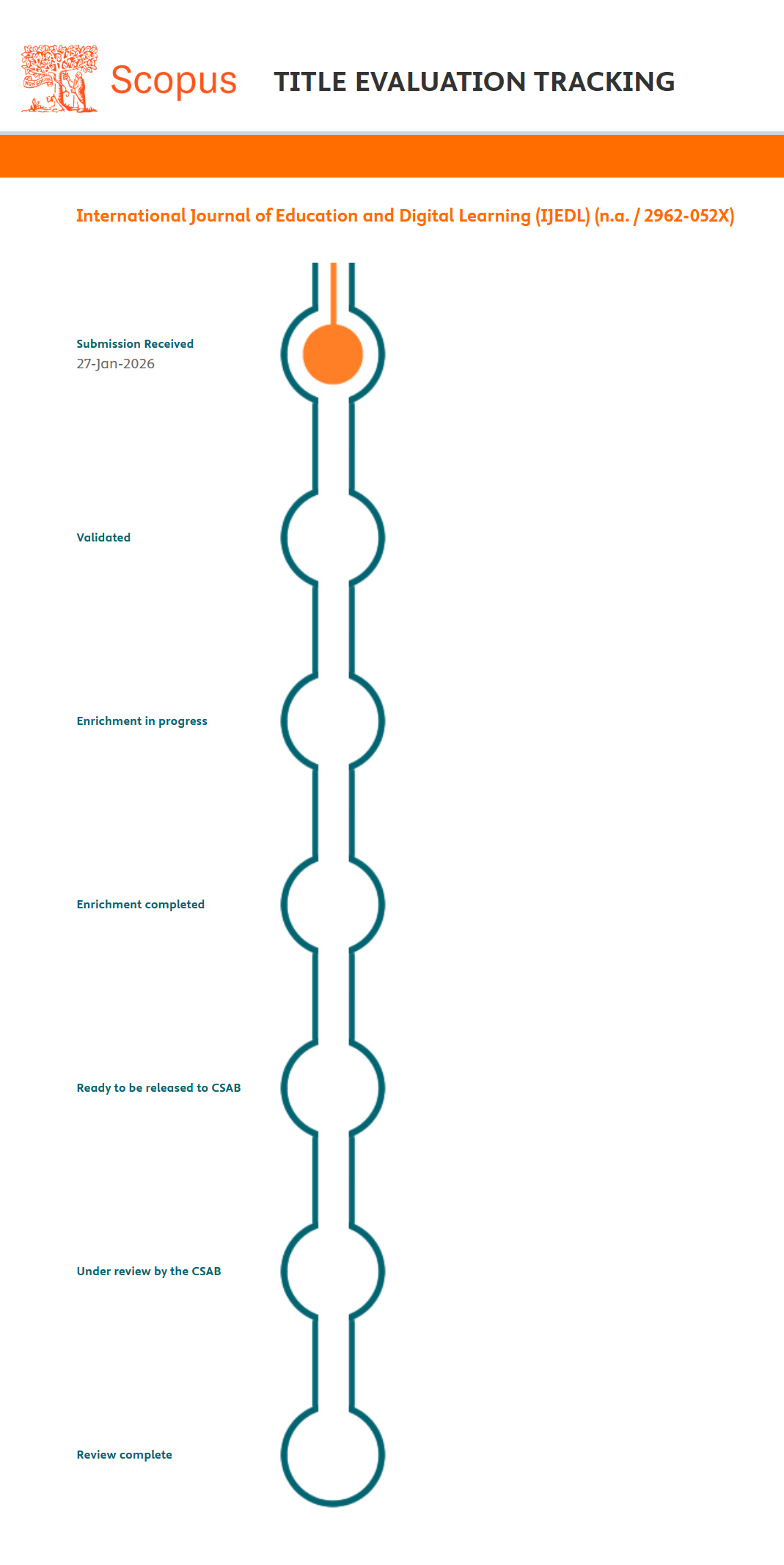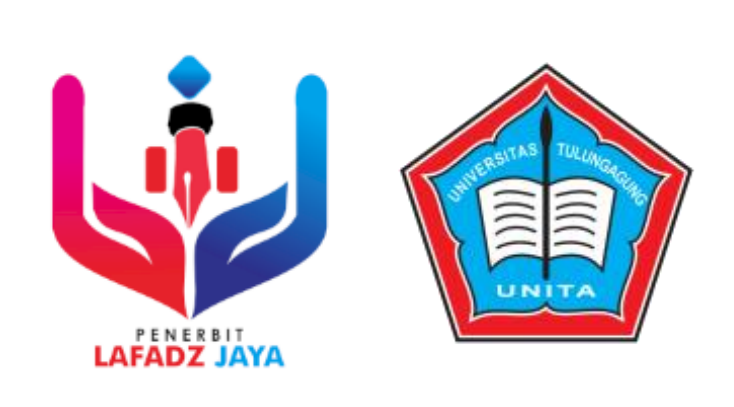Using Elf Strategies in Teaching Students Who Speak Bilingual/Multilingual in the Classroom
DOI:
https://doi.org/10.47353/ijedl.v1i5.49Keywords:
Elementary students, lingua franca, strategies in ELF (English as a lingua franca)Abstract
This study is aimed to show the implementation of English as a lingua franca in elementary school students. The researchers would like to present the strategies used by the teachers in teaching some subjects to students who barely speak Indonesian. This study has not been discussed by many researchers. The use of the ELF strategy by teachers in teaching subjects in a classroom is to keep students engaged in the topic that is being discussed. The researchers employed qualitative research involving five teachers who taught English, Indonesian, and also class teachers in the elementary school. In collecting the data, the researchers participatory sampling and open-ended questions for the participants. In this research, 4 classes have several students who can speak more than one language but are not too fluent in Indonesian. The result of the study showed that teachers used some techniques to teach the students such as using repetition and paraphrasing, code-switching, using pictures, and help-seeking. Moreover, the researchers also found that through the strategies implied by the teacher, students could grasp the material taught by the teacher easily.
Downloads
References
Al-Khresheh, M. H., Khaerurrozikin, A., & Zaid, A. H. (2020). The efficiency of using pictures in teaching speaking skills of non-native arabic beginner students. Universal Journal of Educational Research, 8(3), 872–878. https://doi.org/10.13189/ujer.2020.080318
Alsariera, A. H., & Yunus, K. (2021). the Effectiveness of Efl Jordanian Students’ Descriptive Writing At Karak University College, Jordan. International Journal of Education, Psychology and Counseling, 6(40), 350–367. https://doi.org/10.35631/ijepc.640028
Alzahrani, A. A. (2020). Disagreement Strategies used by Speakers of English as a Lingua Franca in Business Meetings. Advances in Language and Literary Studies, 11(3), 46. https://doi.org/10.7575/aiac.alls.v.11n.3p.46
Calear, A. L., Batterham, P. J., Torok, M., Mccallum, S., Health, P., Road, E., Act, A., Wales, N. S., Road, H., Nsw, R., Calear, A. A. L., Health, P., & Road, E. (2021). Help-seeking attitudes and intentions for generalised anxiety disorder in adolescents: The role of anxiety literacy and stigma. 8406, 1–28.
Cogo, A. (2010). Strategic use and perceptions of english as a Lingua Franca. Poznan Studies in Contemporary Linguistics, 46(3), 295–312. https://doi.org/10.2478/v10010-010-0013-7
Cogo, A. (2015). English as a Lingua Franca : concepts , use , and implications. December 2012. https://doi.org/10.1093/elt/ccr069
Darling-Aduana, J., Good, A., & Heinrich, C. J. (2019). Mapping the inequity implications of help-seeking in online credit-recovery classrooms. Teachers College Record, 121(11), 1–40. https://doi.org/10.1177/016146811912101105
El-Dakhs, D. A. S., Ambreen, F., Zaheer, M., & Gusarova, Y. (2019). A pragmatic analysis of the speech act of criticizing in university teacher-student talk: The case of English as a lingua franca. Pragmatics, 29(4), 493–520. https://doi.org/10.1075/prag.18028.eld
Gerungan, F. N., Olii, S. T., & Andries, F. (2021). an Analysis of Code Switching Used in Classroom. Journal of English Language and Literature Teaching, 5(1), 61–85. https://doi.org/10.36412/jellt.v5i1.2431
Halladay, J., Bennett, K., Weist, M., Boyle, M., Manion, I., Campo, M., & Georgiades, K. (2020). Teacher-student relationships and mental health help seeking behaviors among elementary and secondary students in Ontario Canada. Journal of School Psychology, 81(February), 1–10. https://doi.org/10.1016/j.jsp.2020.05.003
Kumar, T., Nukapangu, V., & Hassan, A. (2021). Effectiveness of Code-Switching in Language Classroom in India at Primary Level: A Case of L2 Teachers’ Perspectives. Pegem Egitim ve Ogretim Dergisi, 11(4), 379–385. https://doi.org/10.47750/pegegog.11.04.37
Kuo, I. V. (2006). Addressing the issue of teaching English as a lingua franca. 60(July), 213–221. https://doi.org/10.1093/elt/ccl001
Lim, I., & Hwang, J. (2019). Korean adult english learners’ perceptions of the common grammatical features of english as a Lingua Franca. Journal of Asia TEFL, 16(3), 876–893. https://doi.org/10.18823/asiatefl.2019.16.3.7.876
Lin, A. M. Y. (2019). Code-Switching in the Classroom : Research Paradigms and Approaches. May. https://doi.org/10.1007/978-3-319-02249-9
Liu, R. (2022). A Research on Different Classroom Questioning Strategies Between Chinese and Foreign EFL Teachers. Journal of Contemporary Educational Research, 6(6), 1–12. https://doi.org/10.26689/jcer.v6i6.4008
Mandasari, B., & Wahyudin, A. Y. (2019). Flipped Classroom Learning Model: Implementation and Its Impact on EFL Learners’ Satisfaction on Grammar Class Corresponding Email Article’s History Flipped Classroom Learning Model: Implementation and Its Impact on EFL Learners’ Satisfaction on Grammar C. Ethical Lingua, 8(1), 2021.
Mocanu, V. (2016). Kalocsái, Karolina: Communities of Practice and English as a Lingua Franca. A Study of Erasmus Students in a Central European Context. Journal of English as a Lingua Franca, 5(1), 363–368. https://doi.org/10.1515/jelf-2016-0013
Mohammad, M. S. (2019). The Effects of the Spread of English Language as a Lingua Franca on Jordanian Society and Its Languages. 10(December), 1–10.
Nagy, T. (2016). English as a Lingua Franca and Its Implications for Teaching English as a Foreign Language. 2, 155–166. https://doi.org/10.1515/ausp-2016-0024
Oktaviani, L., Mandasari, B., & Maharani, R. A. (2020). Implementing Powtoon To Improve Students’ International Culture Understanding in English Class. Journal of Research on Language Education, 1(1), 19–25. https://doi.org/10.33365/jorle.v1i1.779
Schlöglová, T. (2020). English as a lingua franca and simultaneous interpreting: Potential challenges and strategies applied.
Si, J. (2019). English as a Lingua Franca: A New Approach for English Language Teaching in China? Chinese Journal of Applied Linguistics, 42(1), 113–135. https://doi.org/10.1515/CJAL-2019-0007
Siddiq, R. A., Kustati, M., & Yustina, L. S. (2020). Teachers’ Code Mixing and Code Switching: Insights on Language Barriers in EFL Classroom. Al-Ta Lim Journal, 27(1), 80–91. https://doi.org/10.15548/jt.v27i1.606
Situmorang, K. (2022). Request Strategies Used By International Students in English As a Lingua Franca Context. IJIET (International Journal of Indonesian Education and Teaching), 6(1), 39–48. https://doi.org/10.24071/ijiet.v6i1.3698
Suresh Canagarajah, A. (2006). Negotiating the Local in English As a Lingua Franca. Annual Review of Applied Linguistics, 26, 197–218.
Suwannasom, T. (2019). A study on intercultural strategies in English as a lingua franca communication of Naresuan University graduate students.pdf. 307–337.
Vettorel, P. (2018). ELF and Communication Strategies: Are They Taken into Account in ELT Materials? RELC Journal, 49(1), 58–73. https://doi.org/10.1177/0033688217746204
Downloads
Published
How to Cite
Issue
Section
License
Copyright (c) 2023 Yohana Triana Ina Weran, Lailatus Sa’adah

This work is licensed under a Creative Commons Attribution-ShareAlike 4.0 International License.












